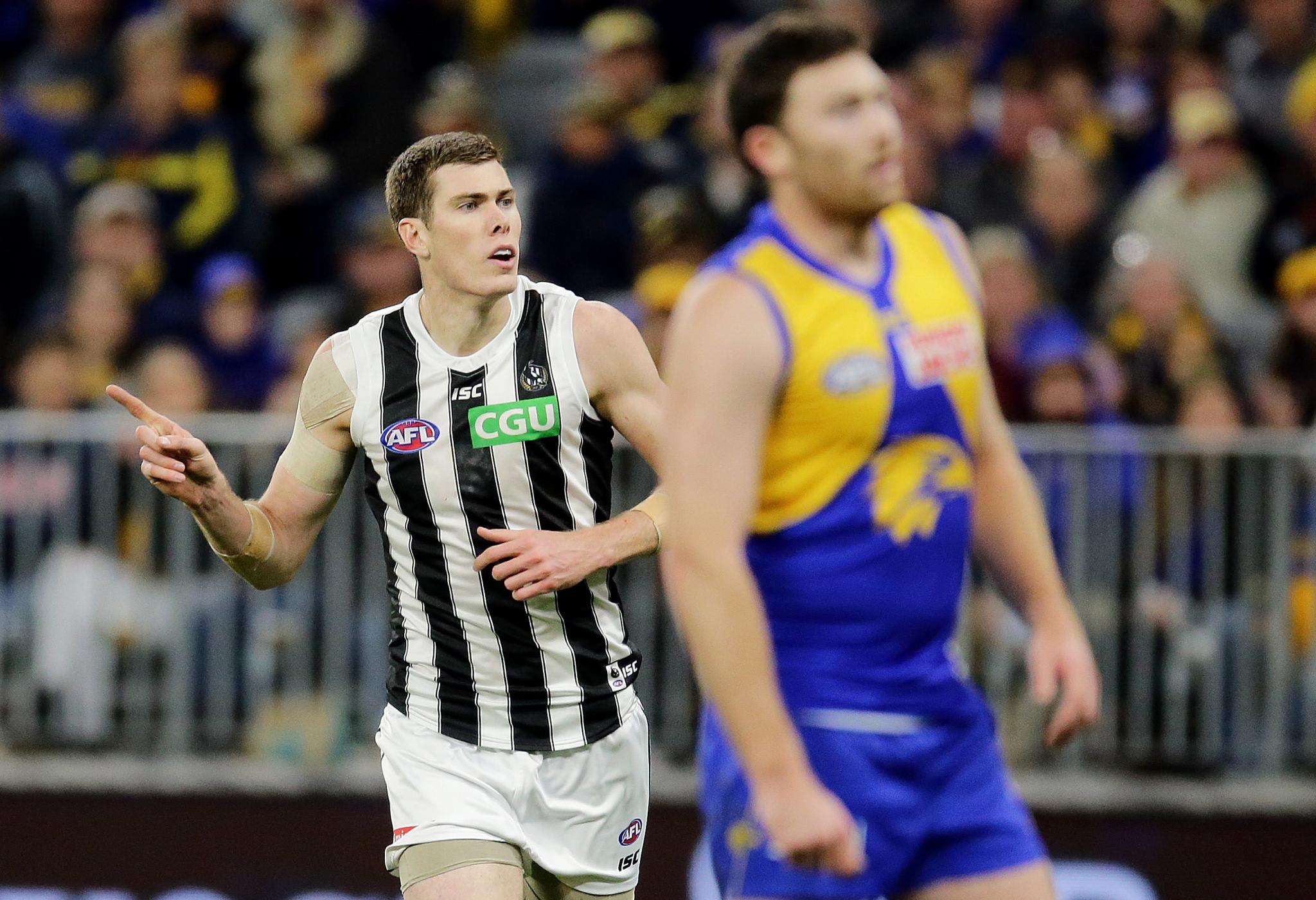AN IRISHMAN snuck in a game of Gaelic football without his AFL club's knowledge or approval for the third straight year on Sunday.
Essendon's Conor McKenna followed Cat Mark O'Connor and Hawthorn's Conor Nash in returning to his sporting roots in the AFL off-season in a relegation playoff match.
The Bombers will wait until McKenna returns to Melbourne before finding out why he did it, while O'Connor and Nash received stern warnings from their respective clubs.
O'Connor was also back at a Gaelic football ground at the weekend but this time only as a spectator.
...and he hasn't forgotten his GAA roots!
— Pat Duffy - P Ó Dubhaigh (@PODubhaigh) November 9, 2019
Spotted cheering on his old team-mates @DingleGAA today as they took on @LiosPoil_CLG in the West Kerry C'ship pic.twitter.com/c8SDFtqbHz
In some ways, this McKenna one is a line-in-the-sand moment for the Irish in the AFL, partly –but not only – because he is an established star on a big playing contract.
Essendon also just signed two fresh-faced, impressionable Irishmen, Ross McQuillan and Cian McBride.
Others receiving a slap on the wrist didn't deter McKenna or his countrymen from doing the same, so should there be a suspension this time around?
Or, are we looking at this the wrong way?
The Irish experiment is enduring, and the late Jim Stynes' story is one of our game's finest and fondest.
There's Stynes' infamous running-through-the-mark lowlight in the 1987 preliminary final; his 1991 Brownlow Medal triumph; his record-shattering 244 consecutive games; and his fundraising efforts as Melbourne's president.
His heartbreaking cancer fight, which he lost in early 2012, was felt by the AFL industry but also many outside of it, because of his selfless work with youth-based organisation The Reach Foundation.
Jim Stynes' success blazed the trail for a succession of Irish imports who followed. Picture: AFL Photos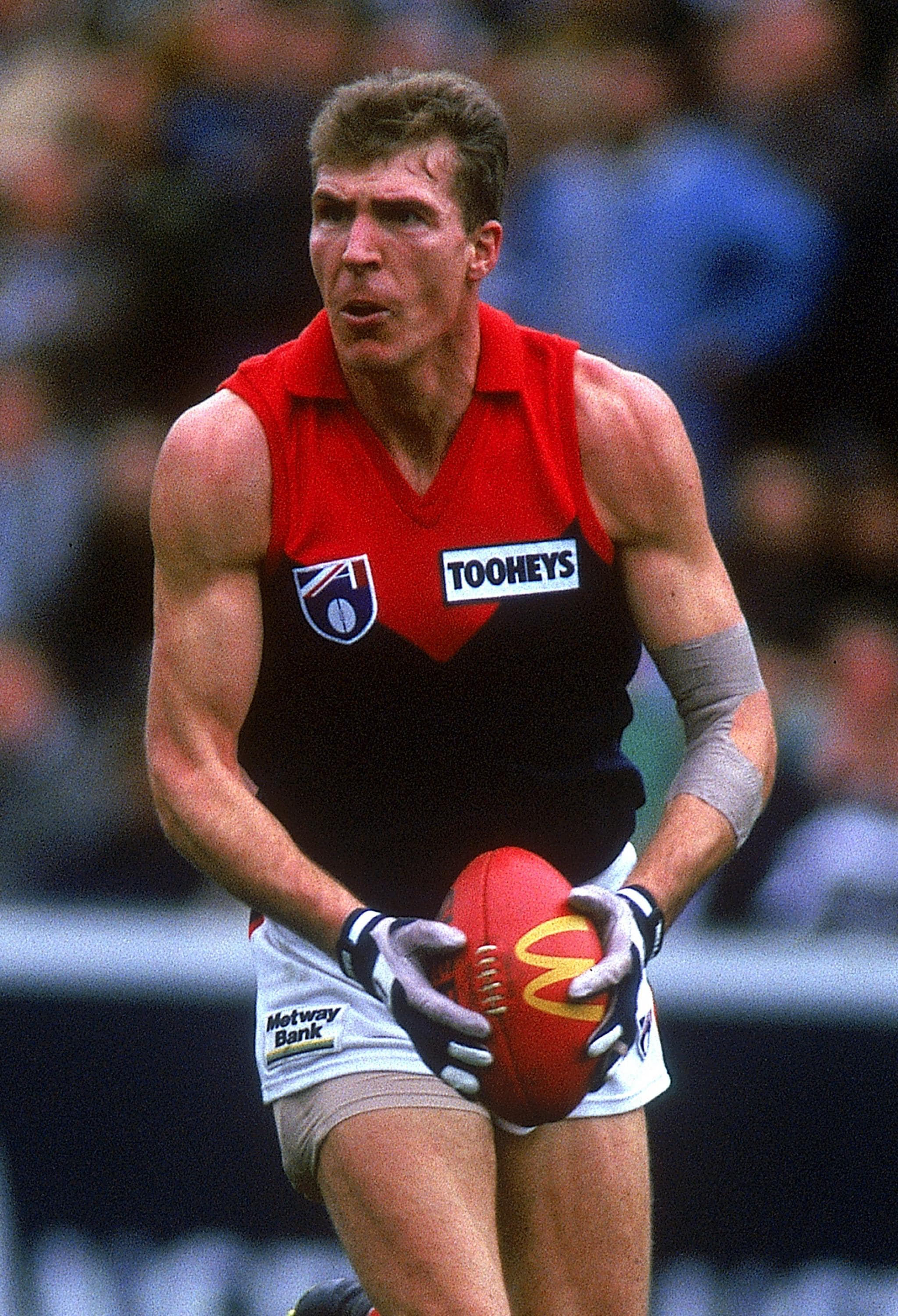
Before Stynes was his Demons teammate Sean Wight and since then we've seen the likes of Tadhg Kennelly, the Ó hAilpín brothers – Setanta and Aisake – Marty Clarke, Pearce Hanley, Zach Tuohy and more.
Kennelly took the 2009 AFL season off to chase his Gaelic football dream of emulating his late father Tim as an All-Ireland champion, and famously scored twice in the final as County Kerry triumphed.
Kennelly celebrates the Swans' 2005 premiership win. Picture: AFL Photos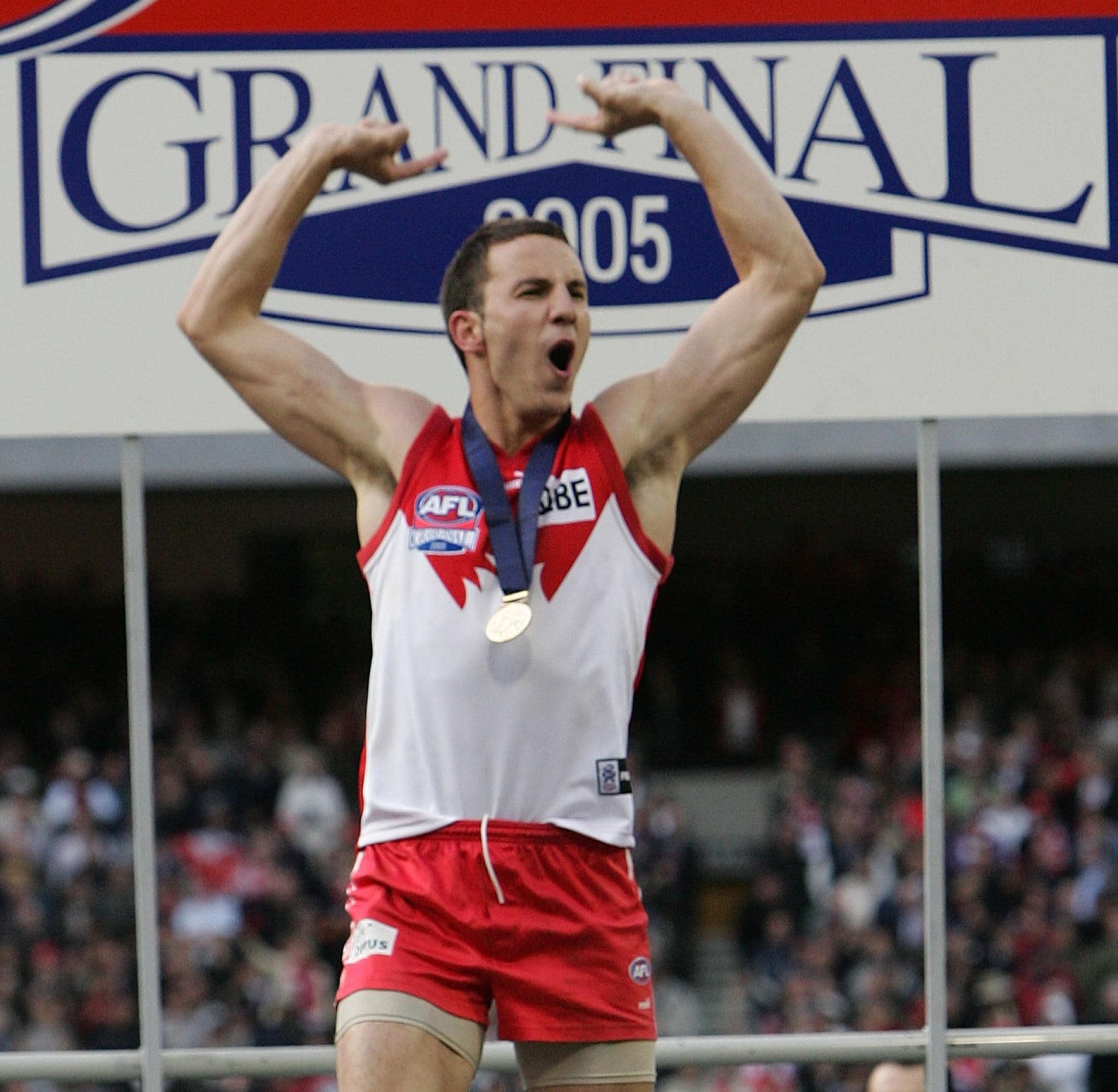
McKenna, Hanley and Tuohy are the biggest names among the current Irish crew, with a record-breaking 17 of them on AFL lists in 2020.
Clarke and another ex-AFL footballer, Ciaran Byrne, help run player development programs in Ireland.
Former Carlton utility Ciaran Byrne. Picture: AFL Photos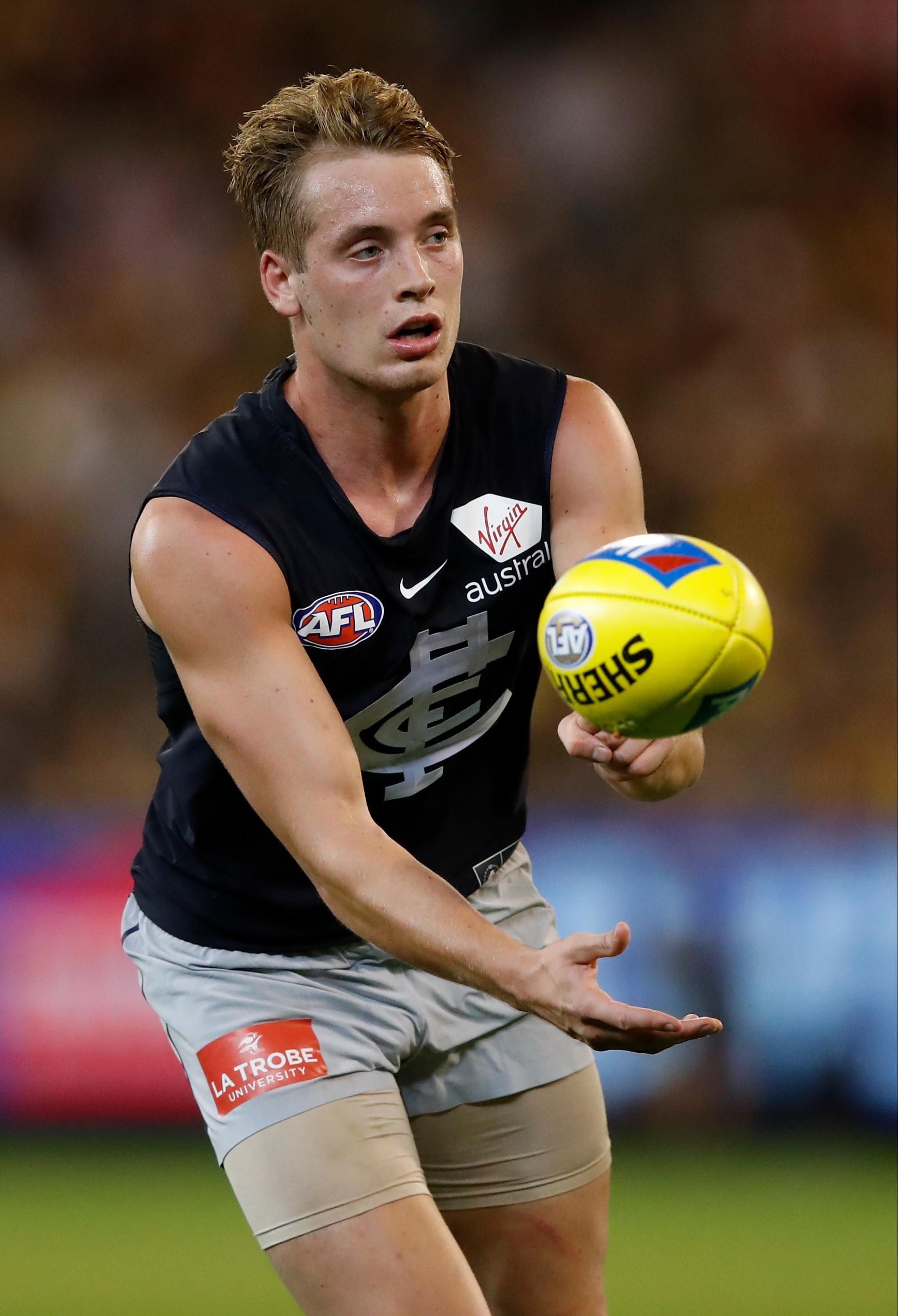
There are 18 Irish footballers set to play in the AFLW next year, in further proof of the successful sporting relationship between the two countries.
On the flipside, more Irishmen return home without fulfilling their initial two-year contracts than those who reach double-digit games.
Red Og Murphy was the latest to exit earlier this year, while Byrne pulled the pin in 2018 with a season to run on his deal after an injury-marred 22 appearances.
Byrne's countryman and then-clubmate at Carlton, Cillian McDaid, also left last year without playing a match.
The AFL is desperate to break international ground and hails not only its Irish exploits but also the likes of Americans Mason Cox, Sanford Wheeler and Jason Holmes, and the growing Sudanese presence.
Mason Cox celebrates a goal against West Coast. Picture: AFL Photos
There's been a dabble with other countries as well, such as New Zealand and Canada.
However, there is an ongoing responsibility to making sure we adapt to keep the trend going. It's not enough to say, 'We offer a wonderful, professional opportunity and they should adapt'.
McKenna himself admitted in a frank interview with AFL.com.au this year that he still suffered "a wee bit with homesickness" despite being in Melbourne for five years.
He lives with his brother Ryan and Ryan's girlfriend, while another sibling, Emmet, and Emmet's wife, are planning a six-month stay in Australia.
McKenna's decision to miss a match this past season to be at Emmet's wedding in Ireland somehow polarised opinion, just like footballers being at the birth of their child sometimes does.
These are life events that only the individual should choose whether to skip or not. This is just sport, after all.
McKenna's comments to AFL.com.au after attending his brother's nuptials were telling.
The club could've just turned around and said no, but I think it could have backfired if it said no.
"Because if I had have missed a family event like that – I've missed weddings but not with my immediate family – then I don't know if I'd be willing to do it, honestly."
At the same time, the balance of power is a little out of whack here.
We can't have Irish players continuing to lie to, and go behind the back of, their AFL clubs to compete for their Gaelic football teams, on the threat of quitting and going home.
There is an obvious risk of injury to start with, as former Saint Ray Connellan can attest.
St Kilda had a contract offer in front of Connellan in mid-2016, when he stepped out for Westmeath in the Leinster senior football final and subsequently broke his right leg before half-time.
A broken leg wasnt in my plans for the day but that's just a part of sport. Proud of everyone of the boys today pic.twitter.com/7FFE6KDpD0
— Ray Connellan (@ConnellanRay) July 17, 2016
Connellan was fortunate the setback didn't spoil his AFL hopes, and he flew to Australia soon after, but there's a lesson for everyone in that moment.
Ray Connellan in action for the Saints during the 2018 AFLX tournament. Picture: AFL Photos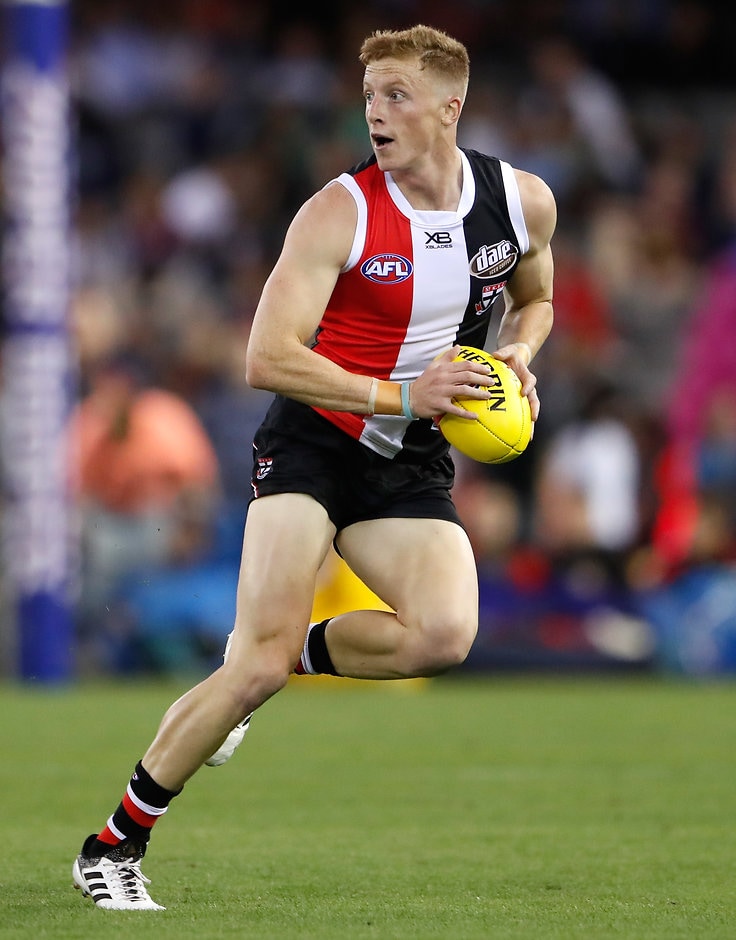
Byrne broke an ankle in a Gaelic game shortly after retiring from the AFL last year, too.
It's probably unrealistic to write into Irish players' contracts that they can make, say, one Gaelic football appearance in the AFL off-season.
The threat of them losing their medical rights at their AFL club in the result of a potential injury in one of these games isn't a path we want to go down either.
Greater education, understanding and compromise – on both sides – still seems the best way to handle this delicate Irish situation but there's no easy answer.


